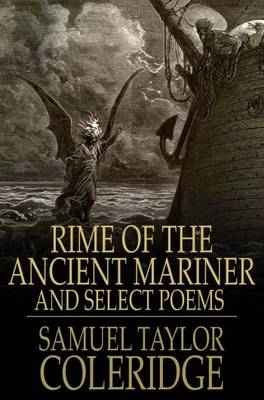Coleridge’s poem The Rime of the Ancient Mariner is written in a way that the reader is expected to temporarily allow him or herself to believe it to be able to understand it.
The poem itself is about a Mariner who is telling his tale of sin and forgiveness by God to a man referred to as the “Wedding Guest.”
The Mariner is supposedly responsible for the death of all of the crew on his ship because of his killing of a creature. Such creature was to bring them the wind that they needed to put power into the sails of the ship.
The whole point of the poem is to encourage or convince the reader to believe the tale that Coleridge tells.
The Mariner in the poem is telling his tale to a “Wedding Guest” who has no choice but to listen and to believe.
The “Wedding Guest” in the poem represents “everyday man” in the sense that “everyone” is to be at the marriage of the Mariner to life. That is, the reader is to follow, live, and participate with the idea of the poem.
Coleridge tells of a Mariner on a ship who makes a sin against God and therefore is cursed. This curse, the killing of an Albatross – one of God’s creatures, costs the entire crew on the ship their lives. Yet he lives so that he can realize what he has done and be given a chance to ask forgiveness for his sin.
The deaths occurred when a ship was sited and on it, two women-like figures were playing dice and life won the Mariner and death got the crew.
Until he began to pray and ask for forgiveness the crew’s souls couldn’t enter Heaven but once he did the curse was broken, his life was saved, and Angels came down from Heaven and took the crew’s souls with them. He had become a saved man.
The whole point of the story becomes clear in the following lines.
“Farewell, farewell! but this I tell
To thee, thou Wedding Guest!
He prayeth well, who loveth well
Both man and bird and beast.
“He prayeth best, who loveth best
All things both great and small;
For the dear God who loveth us,
He made and loveth all.”
The Mariner, whose eye is bright,
Whose beard with age is h*ar,
Is gone: and now the Wedding Guest
Turned from the bridegroom’s door.
He went like one that hath been stunned,
And is of sense forlorn:
A sadder and a wiser man,
He rose the morrow morn. (610-625)
In these closing lines, Coleridge basically sums up the whole poem. Here he is telling the “Wedding Guest” all about how to live a good life with God and to respect all things that God creates.
The Mariner is sharing what he learned on his voyage in these lines. It tells how the “Wedding Guest” left after hearing the entire Mariner’s tale and left a wiser man. What this meant is that he left understanding the Mariner’s words and learned from the Mariner’s mistakes.
In a certain sense you could say that through the tale he placed the “fear of God” in people that made them more likely to believe the story.
When people are fearful of something they have more of a tendency to fall prey to something and Coleridge takes advantage of this in getting his point across. The poem is written in a brilliant way that can convince the reader to think in whatever manner Coleridge wants them to.
Coleridge wanted people to understand the Mariner and to be able to relate to him and to understand him. He conveyed his point of religion to the reader by making the reader subconsciously fall prey to the images and thoughts he instilled in their minds.
The poem for the most part does as Coleridge intended and gets the reader to at least understand and believe the tale that the Mariner has to tell.


One of my favorites in high school literature